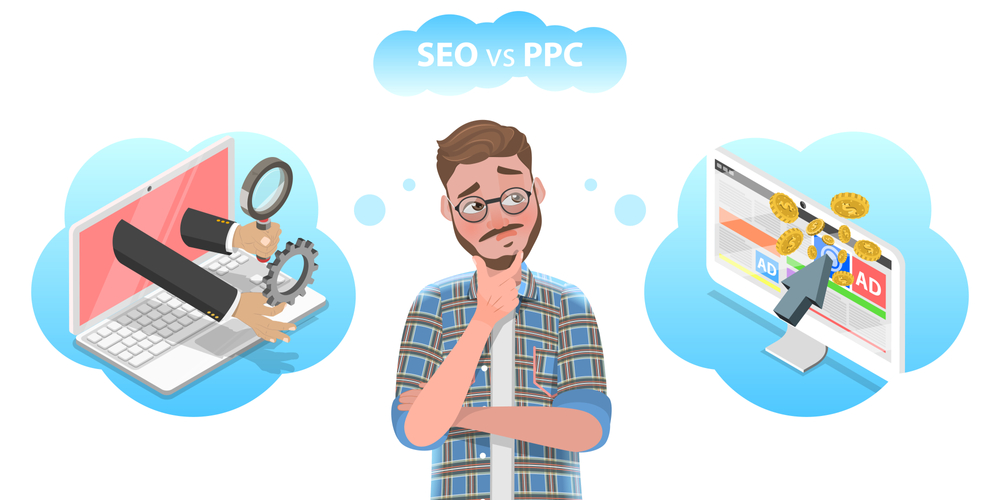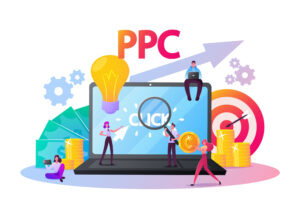SEO vs. PPC: Which Strategy Is Better for Your Business?

Over 90% of buying processes start with a search online. Consumers go online, searching for your product or service. If your brand doesn’t appear at the top of a search engine results page, however, consumers might not find you.
In fact, they might not even realize your business exists.
With search engine marketing (SEM) strategies like SEO and PPC, you can improve your online rankings. Then, you can reach more customers, generate more web traffic, and gain more sales.
What’s the difference between SEO and PPC? Which strategy best suits your business? Learning about both search engine marketing strategies will help you make a more informed decision. Then, you can start marketing to reach more customers online.
Make the most of your marketing budget this year and read on to learn the difference between SEO and PPC.
What Is SEO?
Before comparing SEO vs PPC, let’s look at each strategy on its own.
What is SEO, exactly? SEO stands for search engine optimization. With SEO, you can optimize your website content for search engines using keywords.
When a consumer searches for a relevant keyword, your website content could appear for their search. Then, they can click on your content to learn more about your business.
Over 53% of all website traffic comes from organic searches. In fact, SEO drives 1,000% more traffic than organic PPC. SEO leads also have a 14.6% close rate.
Unfortunately, only 0.78% of Google users look at results on the second page of a search. If you’re not improving your organic rankings, consumers aren’t finding you online.
In order to develop a strong SEO strategy, you’ll need to determine what keywords consumers use to find your product or service online. Then, you can create engaging, helpful blog content based on your keyword research. You can optimize each post by strategically placing your target keywords.
Types of SEO
As part of your overall search engine optimization strategy, you’ll need to consider different types of SEO. These include:
- On-page SEO
- Off-page SEO
- Technical SEO
- Local SEO
On-page SEO involves optimizing your posts using target keywords. You can control on-page SEO factors.
You can’t, however, control off-page SEO factors completely.
As part of your off-page SEO strategy, you’ll need to generate backlinks. Backlinks send readers from one website to your content. Generating backlinks from high domain authority websites can boost your SEO rankings.
You can generate backlinks by guest blogging on someone else’s website. Posting unique, high-quality posts on your blog can help you gain organic backlinks, too.
Technical SEO involves updating the backend of your site. Google wants to provide users with the best user experience. Creating a fast, mobile-optimized, user-friendly website can improve the user experience.
Otherwise, visitors will leave your website without exploring, which can hurt your rankings.
Local SEO allows you to appeal to nearby customers. You can update your Google My Business listing or create location-based content.
The Benefits of SEO
Creating a strong search engine optimization strategy can help you reach more customers. You can improve your online visibility and generate more brand awareness. With repeat exposure, you’ll have an easier time remaining top-of-mind.
SEO can also help position you as a thought leader in the industry. You can rank ahead of competing businesses to boost your credibility.
You can also generate more website traffic, leads, and sales to improve your ROI.
Need Assistance? Our Team Offers Creative Digital Marketing Services for Higher Education Institutions, Law Firms, Restaurants, and HVAC Organizations. Contact Our Digital Marketing Specialists to Receive Assistance.
What Is PPC?
What is PPC advertising, then?
Google pay-per-click (PPC) advertising is a paid search engine marketing strategy. You’ll pay each time someone views or clicks on one of your ads. Your PPC ads can appear on search engines, social media platforms, and other websites.
You can format your PPC ads as text, animations, still images, HTML-5 ads, and videos.
When someone clicks on your ad, they’ll reach a landing page on your website. Then, you can convert that visitor using strong call-to-action language.
You can target consumers based on the keywords they use to find your product or service. However, you can also target consumers based on demographics. Precise targeting will help you better utilize your advertising budget.
The Benefits of PPC
Paid advertisements have a 200% ROI. In fact, PPC generates twice the number of website visitors than SEO. Ads can also boost brand awareness by 80%.
Using precise targeting can help you avoid wasting time and money, too.
Then, you can generate more web traffic, market your offerings, and generate more leads or sales.
SEO vs PPC
The biggest difference is SEO is organic while PPC is paid. You can’t pay to improve your organic SEO rankings. This could, however, work in your favor.
Since you can’t pay to improve SEO rankings, your competitors can’t, either. Remember, ranking ahead of competitors could boost your credibility. You could generate brand trust to gain more leads and sales.
PPC marketing, however, can allow you to better utilize your time and advertising budget.
It can take time before your organic SEO rankings improve. With PPC marketing, your ads can appear the same day you create them. You can reach customers online immediately to generate more sales.
In order to boost your PPC rankings, however, you’ll need a strong quality score. Otherwise, your cost-per-click can increase. You could blow through your entire advertising budget sooner than expected.
Google’s search engine algorithm changes throughout the year, impacting SEO rankings. The algorithm won’t impact PPC rankings, though.
Instead of choosing between these search engine marketing strategies, consider using both. You can use PPC marketing to improve your SEO rankings. As people visit your website through PPC ads, Google will notice you’re generating traffic.
It might decide to improve your organic rankings as a result.
Then, you can reach more customers to give your business a boost.
Search Engine Marketing: Understanding SEO and PPC
You don’t have to choose between SEO or PPC. Instead, try working with an experienced digital marketing agency. Their search engine marketing services will ensure you make the most of both strategies.
Then, you can reach more customers online to give your business the boost it needs.
Eager to get started? We can help you meet your potential. Schedule a strategy call today.
Comments are closed.
